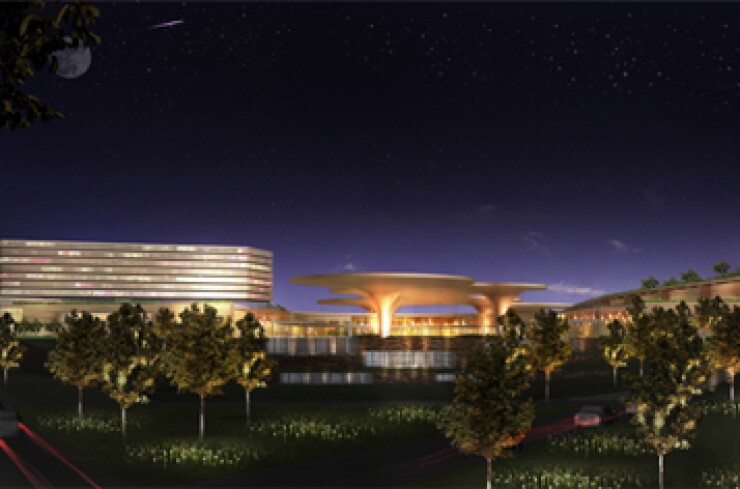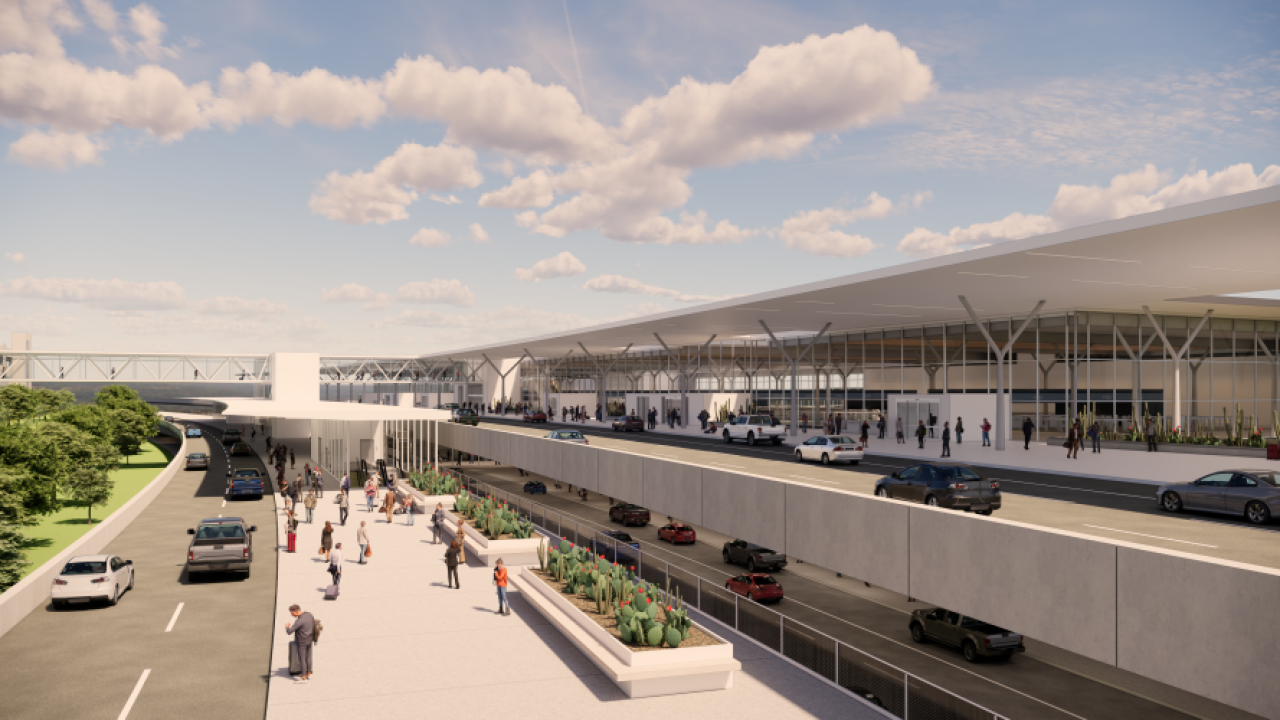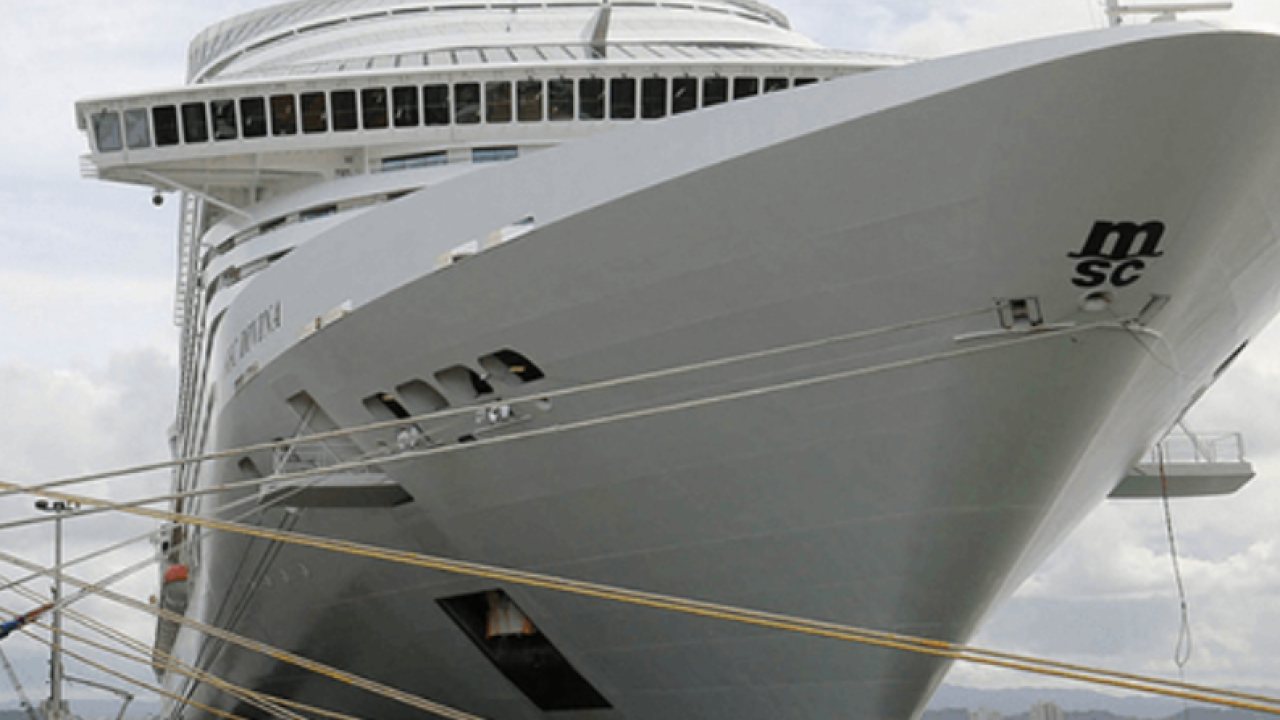
Massachusetts Gov. Deval Patrick has a $36.5 billion budget awaiting his signature. But the fiscal 2015 spending plan includes an expected $73 million in casino and slot parlor licensing fees that voters could render moot in a Nov. 4 referendum.
A vote to repeal the state's plans for expanded gambling - polls vary widely - could punch a ghastly revenue hole. The commonwealth has factored in about $53 million in casino licensing fees and $20 million in slot-parlor money.
"We've already started to use it and depend upon it," House Speaker Robert DeLeo, D-Winthrop, told reporters. Without the gambling money, "we would have to make some difficult decisions in terms of cuts."
Last week, the state Supreme Judicial Court allowed voters to decide in November whether to repeal the Expanded Gaming Act, which Massachusetts passed in 2011. The act authorized regional three hotel resort casinos and one statewide slots parlor, all positioned in border regions to keep gamblers from traipsing out of state while luring out-of-staters to Massachusetts as well.
Commonwealth officials envision up to an additional $400 million in revenue once the facilities are operational. The original target date was 2016.
The court ruled that Attorney General Martha Coakley, the leading Democratic candidate for governor in the polls, erred by refusing to certify the referendum, for which casino opponents petitioned.
It's the latest bizarre twist to a journey bogged down in local referenda, lawsuits, land-trust disputes, conflict-of-interest allegations and even accusations of ties to organized crime. Negative publicity has reduced public support for casinos, according to Greg Sullivan, research director for the Boston-based think tank Pioneer Institute.
"There has been a lot of unhappiness due to a combination of all these things, and it's changing public perceptions," said Sullivan, a former state inspector general. "It's such a big issue, it could play a major factor in the gubernatorial race. It's a bigger issue than the election itself."
A June 30 poll by University of Massachusetts Dartmouth Center for Public Policy had 46% keeping the casino law, 41% repealing it and 13% undecided. That falls within the poll's 4.9% margin of error. By contrast, Boston public radio station WBUR on Wednesday had 56% to 31% for retaining casinos.
Massachusetts hopes to swipe business from Native American-owned Mohegan Sun and Foxwoods resorts in Connecticut, and to a lesser extent, the privately owned Twin River Casino in Lincoln, R.I. The Bay State is not alone. Pennsylvania, for instance, legalized casinos to compete with Atlantic City, N.J. New York State is accepting bids for four new casinos.
The "me, too" game worries David Fiorenza, a public finance professor at Villanova School of Business.
"I have strong concerns about the continuing process of relying on an industry that has seen its saturation in the states surrounding [Pennsylvania]," said Fiorenza, a former chief financial officer of Radnor Township, Pa. The Pennsylvania Gaming Control Board is weighing applications for a second Philadelphia casino. The other one is in Chester, Pa.
Penn National Gaming Inc. on June 27 dropped its bid for a $480 million casino in South Philadelphia. While the primary motive was city officials' support of Center City casino proposals, Penn National also called Philadelphia a less appealing market than two years ago, when it started the application process. The Wyomissing, Pa., company in its statement cited "the ongoing gaming saturation in the mid-Atlantic region, as well as continued softness in the economy."
Penn National did receive the one stateside slots parlor license in Massachusetts and is pursuing a Catskills casino in New York.
The Massachusetts Gaming Commission on Wednesday unanimously rejected a request by Boston Mayor Martin Walsh not to issue the license for Region A - perceived as the most lucrative - until after the referendum.
The sites of two competing bids for Region A abut Boston along its North Shore. Earlier in the year, Boston lost a bid for host-city status rather than surrounding city, which would have strengthened its bargaining position for mitigation money to offset such expenses as infrastructure wear and the social costs of gambling.
Boston corporation counsel Eugene O'Flaherty told the commission at Bunker Hill Community College in Charlestown on Wednesday that issuing a license could bias the referendum.
Mohegan Sun, seeing opportunity in Massachusetts as well as a threat to its struggling Connecticut operations, has a $1.3 billion proposal for the Revere portion of Suffolk Downs horse racing track, which straddles Revere and Boston.
"The best hope for the struggling Connecticut companies lies across the border in Massachusetts," Moody's Investors Service analyst Peter Trombetta wrote last year. "If they are awarded licenses to operate there, their prospects will brighten considerably, but if not, both will see continuing deterioration in gaming revenue amid competition from nearby states."
The other Greater Boston bid is from Las Vegas developer Steve Wynn's Wynn Resorts, with a competing $1.6 billion proposal at a contaminated former Monsanto Chemical site in Everett.
The commission expects to issue the Boston-area license by mid-September. Chairman Stephen Crosby recused himself from the Boston consideration among conflict-of-interest concerns. Crosby was late in disclosing past business ties to a key player in the Everett casino site, and was seen at a private Suffolk Downs party on Kentucky Derby day.
According to Clyde Barrow, director of the UMass Dartmouth public policy center, the success of the entire process rests upon how the commission decides the Greater Boston license and its willingness to more aggressively promote a Region C, or Southeastern Massachusetts, commercial license, or continue to set aside the region for the Mashpee Wampanoag Tribe.
Mashpee Wampanoag has proposed a casino in Taunton, 20 miles east of Providence, R.I., but federal officials must first place the proposed site into federal trust.
"It would be better if the commission started to move forward," he said. "It should make its two remaining licensing decisions before the November referendum because voters should be armed with the knowledge to cast a fully informed vote, no matter how they intend to vote."
Barrow said the panel has plodded excessively.
"It's an inexperienced commission. Only one person [Gayle Cameron] has experience with casinos. I don't think the others had ever set foot in a casino before," he said. "They spent a lot of time just learning things and going on [expensive] junkets to Asia. They were overly cautious and started background investigations from scratch."
Cameron retired as a State Police lieutenant colonel in New Jersey, noted for its rigorous casino regulation.
The UMass Dartmouth poll also showed a strong preference in Greater Boston for Mohegan Sun over Wynn Resorts, 48% to 21%. "New England is a very parochial place and Mohegan Sun has a presence here. Massachusetts residents spend millions of dollars on trips to Connecticut," said Barrow.
"There has been negative publicity with the Wynn proposal, with accusations of ties to Macau and organized crime figures in the Everett land deal. There's also the issue of pollution on the Monsanto land itself."
The Boston Globe reported that a federal grand jury and two state agencies are investigating whether Revere businessman Charles Lightbody, a convicted felon, is quietly involved with the Everett property. The report said a co-owner of the land, Anthony Gattineri, would not sign a promise that no secret partners are involved.
Mob allegations also surfaced last fall. Caesars Entertainment pulled its original bid for Suffolk Downs over concerns that it would fail a Gaming Commission background check. Investigators flagged an investor with reputed organized-crime connections in relation to a Caesars deal with the New York-based Gansevoort Hotel Group to open a hotel in Las Vegas.
Caesars sued Gaming Commission Stephen Crosby in U.S. District Court, saying the "Gansevoort issue," as it's called in court papers, was unsubstantiated. Mohegan Sun jumped in shortly afterward with its own Suffolk Downs proposal.
The situation is clearer in Western Massachusetts, or Region B. The commission in mid-June issued its first license, to MGM Resorts International for an $800 million complex in downtown Springfield.
In February the panel awarded Penn National the slots parlor license. Penn National, which paid $25 million for the license, expects to open its $225 million parlor in June 2015 at the Plainridge harness race track site in Plainville, only 12 miles from Twin River.
The Supreme Judicial Court's spanking of Coakley recast a harsh spotlight on the attorney general, who blew a 31-point lead in the polls four years ago to Republican Scott Brown in the special election for U.S. Senate to replace the late Edward "Ted" Kennedy.
"It probably hurts Coakley, because it looks like the state is sticking up for the casino operators. What was she thinking?," said Boston College professor and casino expert Richard McGowan. He thinks the pro-casino movement will withstand the referendum, though by a smaller margin in Boston.
Coakley has led fellow Democrat state Treasurer Steven Grossman by as many as 35 points in polls ahead of the Sept. 9 primary, although the party nominated Grossman last month at its state convention.





